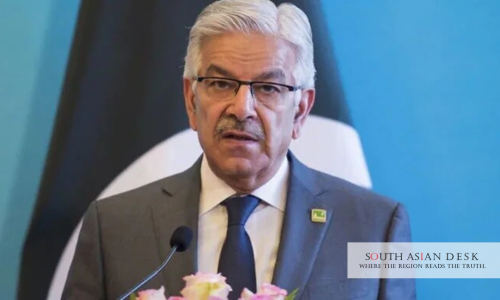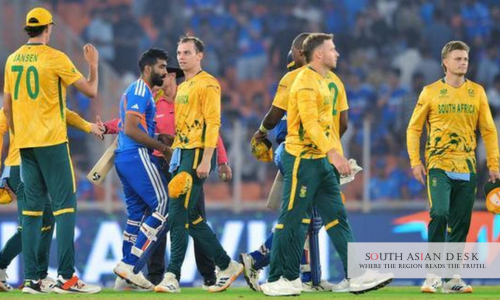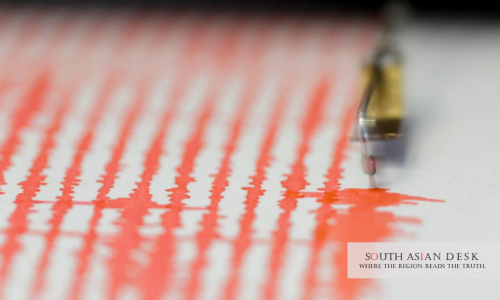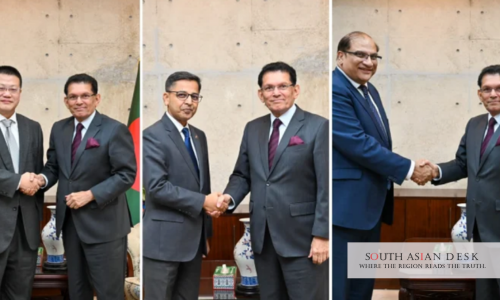Pakistan Saudi Arabia defence pact have formalised a strategic mutual defence agreement, with indications that other Arab nations could potentially join, amid rising regional tensions.
Pakistan and Saudi Arabia signed a landmark Strategic Mutual Defence Agreement on Wednesday, September 17, 2025, at the Al-Yamamah Palace in Riyadh, pledging that any aggression against one nation would be treated as an attack on both, as announced during Prime Minister Muhammad Shehbaz Sharif’s state visit hosted by Crown Prince Mohammed bin Salman. The pact, aimed at enhancing defence cooperation and joint deterrence, reflects longstanding bilateral ties and responds to shared security concerns in the region.
This Pakistan Saudi Arabia defence pact holds significant implications for South Asia, bolstering Pakistan’s strategic alliances in the Gulf and potentially securing economic inflows from Saudi Arabia amid Islamabad’s fiscal challenges. It could reshape regional dynamics, including Pakistan-India relations, by integrating Pakistan more deeply into Arab security frameworks, while underscoring a shift towards collective Muslim-world defence mechanisms that may influence broader South Asian stability.
Signing of the Pakistan Saudi Arabia Defence Pact
The agreement was inked during an official session of talks at Al-Yamamah Palace, attended by delegations from both sides, including Pakistan’s Deputy Prime Minister and Foreign Minister Ishaq Dar, Defence Minister Khawaja Asif, Finance Minister Muhammad Aurangzeb, and Chief of Army Staff Field Marshal Asim Munir. Prime Minister Sharif conveyed greetings to Custodian of the Two Holy Mosques King Salman bin Abdulaziz Al Saud, while the two leaders reviewed historic relations and topics of mutual interest.
The joint statement emphasised that the pact builds on nearly eight decades of partnership, rooted in brotherhood, Islamic solidarity, and shared strategic interests. It explicitly states: “any aggression against either country shall be considered an aggression against both,” aiming to develop defence cooperation and strengthen deterrence against threats. According to the Ministry of Foreign Affairs Pakistan, the agreement reflects a “shared commitment” to regional security and peace. Similarly, the Saudi Ministry of Foreign Affairs highlighted the signing in official communications, underscoring enhanced bilateral ties.
Defence Minister Khawaja Asif elaborated on the pact’s scope during remarks on Thursday, September 18, 2025, confirming that Pakistan’s capabilities, including its nuclear assets, would be available under the agreement. He stated: “What we have, our capabilities, will absolutely be available under this pact. But let me say, since Pakistan has become a nuclear state, never has anyone challenged our status of being a responsible nuclear power.” Asif described the arrangement as defensive, akin to NATO, and not intended for aggression or territorial gains.
The timing of the Pakistan Saudi Arabia defence pact follows an extraordinary Arab-Islamic summit on September 15, 2025, convened after Israel’s airstrikes on Doha on September 9, 2025, which targeted Hamas leaders during ceasefire discussions mediated by Qatar. This incident heightened regional anxieties, prompting calls for coordinated Arab responses and a review of ties with Israel.
Historical Context of Pakistan Saudi Defence Ties
Pakistan and Saudi Arabia’s military collaboration dates back to 1967, when Pakistan began training Saudi personnel, with over 8,200 trained to date. Ties deepened after the 1979 seizure of the Grand Mosque in Mecca, leading to a 1982 Bilateral Security Cooperation Agreement. At peak, up to 20,000 Pakistani troops were stationed in Saudi Arabia. Recent milestones include a February 2025 Joint Military Cooperation Committee meeting in Riyadh, pledging expanded training and exchanges.
The pact formalises these efforts, providing Saudi Arabia with bolstered defences against threats from Iran, Houthi militias, and Israeli actions in Gaza, while offering Pakistan economic support through Saudi investments during its financial strains. For Pakistan, it marks the most significant formal defence commitment since the erosion of past US-aligned pacts like SEATO and CENTO.
Potential Involvement of Other Arab Nations in Pakistan Saudi Defence
Defence Minister Khawaja Asif indicated openness to broader participation, stating on September 18, 2025: “I cannot prematurely answer this, but I will definitely say the doors are not closed.” He added: “I think it is a fundamental right of the countries and people here, particularly the Muslim population, to together defend their region, countries and nations.”
This suggestion aligns with the pact’s non-exclusive nature, as Asif noted it does not preclude similar agreements with others. Early reactions include felicitations from Egypt’s Foreign Minister, who called it a “milestone in strengthening partnership.” According to the Ministry of Foreign Affairs Pakistan, the call from Egypt underscored commitments to multilateral cooperation.
Background
The agreement emerges amid waning US security guarantees for Gulf states, following Israel’s Doha strike, which prompted an emergency Arab-Islamic session demanding UN suspension of Israel. Pakistan’s role as the sole nuclear-armed Muslim-majority nation positions it as a key player in pan-Islamic security. A senior Saudi official described it as encompassing “all military means.”
India’s Foreign Ministry acknowledged the development, stating it would study implications for national security and regional stability. Riyadh clarified no shift in its ties with India.
What’s Next
As the Pakistan Saudi Arabia defence pact takes effect, discussions on implementation, including joint exercises and potential expansions involving other Arab nations in Pakistan Saudi defence frameworks, are anticipated at upcoming forums like the UN General Assembly in late September 2025. This could further solidify collective security in the Muslim world, with the pact serving as a cornerstone for enduring bilateral and multilateral ties.
Published in SouthAsianDesk, September 19th, 2025
Follow SouthAsianDesk on X, Instagram, and Facebook for insights on business and current affairs from across South Asia.






